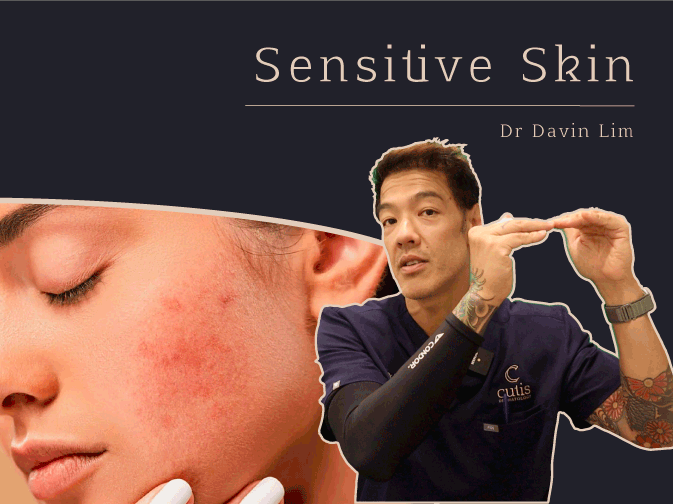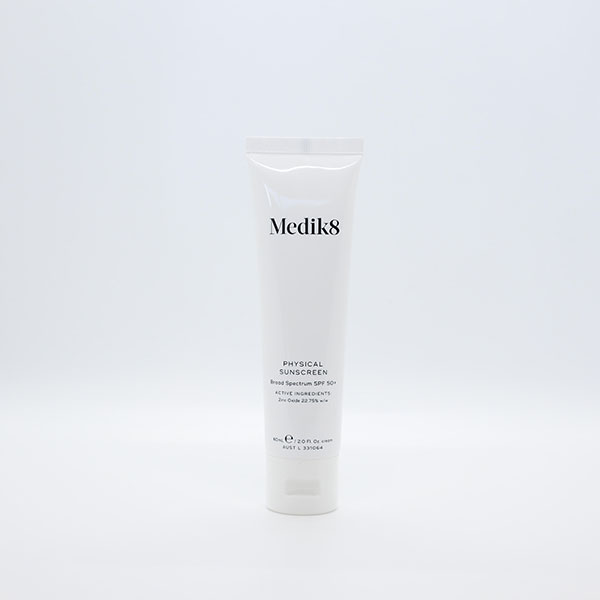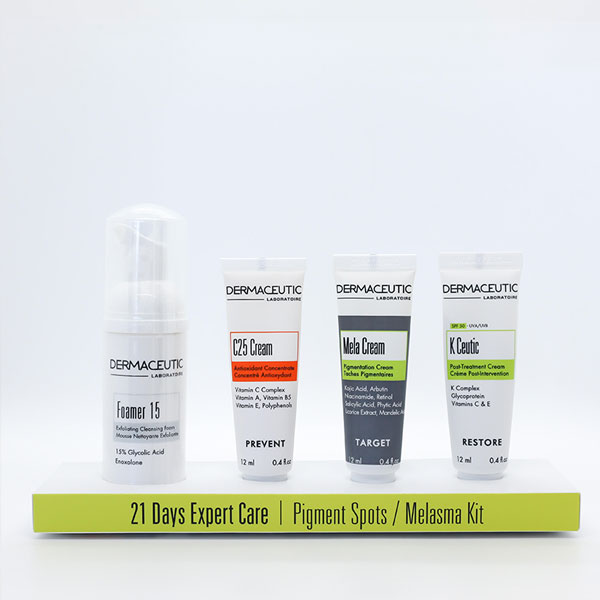For patients with sensitive skin, the less is more approach is important. Keeping your skin care simple & precise will help you build up your skin’s barrier function & reduce inflammation. Our dermatologists & nurses can give you a guide as to the best cleanser, moisturisers, sunscreens & skincare ‘actives’ to follow.
Key Points
- The foundation of skin care for sensitive skin is to keep your routine simple
- Niacinamide is anti-inflammatory
- Ceramides & squalene can help repair skin & improve barrier function
- Retinyl palmitate is the most tolerated retinoid for patients with sensitive skin
- Choose a bland cleanser with ceramides
- Avoid ascorbic, lactic & glycolic acid preparations
- Physical over chemical sunscreens are best
Sensitive Skin Skincare at a glance
Our results speak for themselves
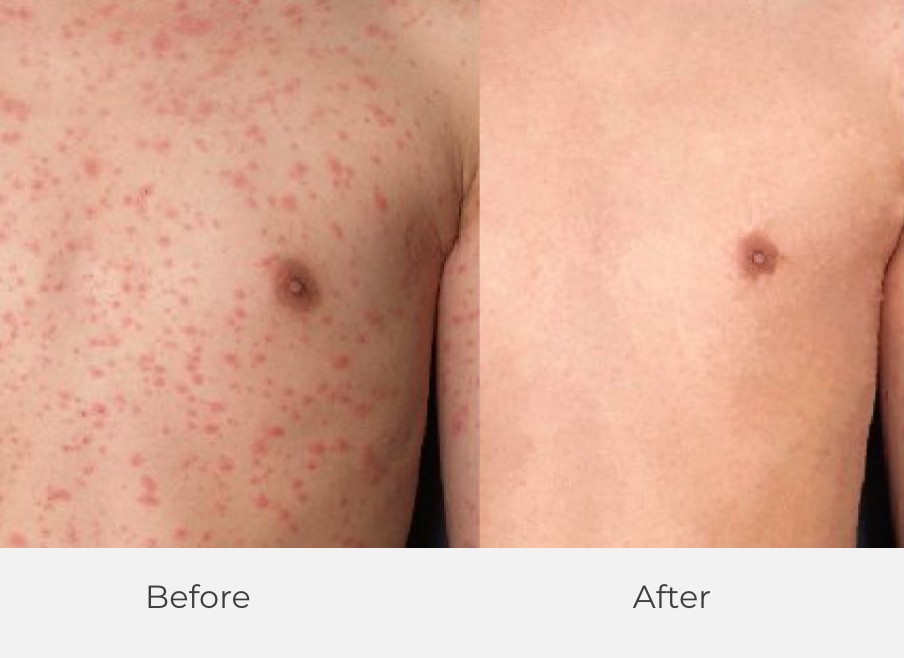
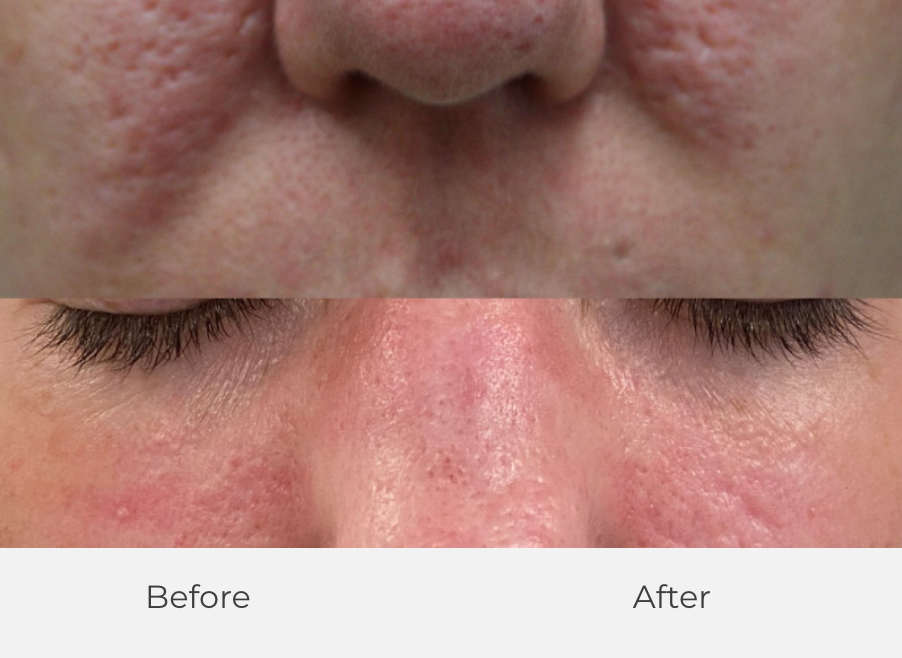
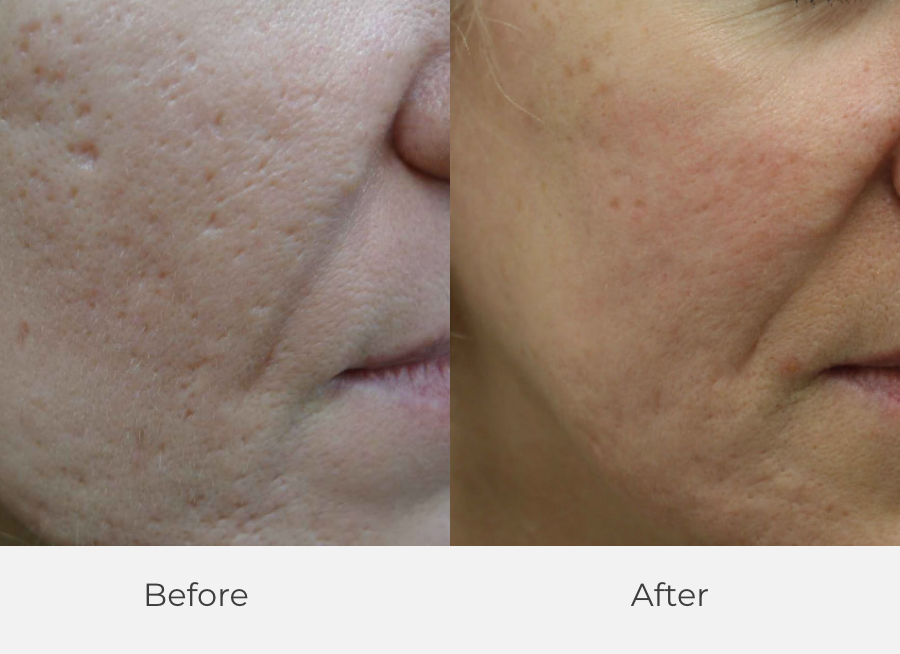
FAQs
What is a simple skin care routine for sensitive skin?
A simple skin care routine is as follows.
- AM: pH suitable cleanser. Physical sunscreen.
- PM: pH suitable cleanser, bland moisturiser, niacinamide.
From there you can gradually add skin care products based up on your aim, they include-
- Azelaic acid: anti-inflammatory, anti-pigment, anti-acne
- Retinyl palmitate: anti-ageing
- Hyaluronic acid: humectant
- Tocopherol: antioxidant
- Ceramides/squalene builds barrier function
What ingredients are safe for sensitive skin?
There is no absolute, so we will use the word ‘safer’. These ingredients include-
- Niacinamide
- Azelaic acid
- Hyaluronic acid, hyaluronate
- Ceramides
- Squalene
- Some botanicals
What ingredients may potentially irritate your skin?
The three most common skin irritants are acids, soaps & retinoids. Let’s explore acids. Your skin’s pH is acidic at around 5.5, alkaline soaps increase the pH, leading to inflammation, hence why it’s super-important that you choose a correct cleanser.
Acids that can irritate your skin include AHAs such as glycolic, lactic & citric acids, as well as ascorbic acid or vitamin C. Avoidance is not absolute, with guidance & titration you may tolerate low concentrations.
Retinoids such as tretinoin, adapalene, retinoic acid, retinol & retinaldehyde are often not well tolerated if you have sensitive skin. The safest is retinyl palmitate, however with care & guidance, avoidance of retinoids are not absolute.
How to approach skin rejuvenation if you have sensitive skin?
The number one rule is to avoid potentially irritating chemicals– especially chemical peels. Sure, enzyme peels, pumpkin peels, etc. have been advertised to calm angry skin, & in some rare cases they may work. Dermatologists employ lasers & lights to rejuvenate the skin, & at the same time reduce inflammation.
Lasers such as VBeam vascular laser, laser genesis, as well as non-ablative fractional lasers can provide safe & effective photo rejuvenation in patients with rosacea & sensitive skin.
What are the best lasers for patients with sensitive skin?
Universally, vascular lasers, broad-band light & LLED devices can reduce inflammation & redness in patients with sensitive skin.
Fractional lasers can be employed for photo rejuvenation & sun damage, however they should be used with caution. If you are going to effectively stimulate collagen, you will probably need to reduce rebound redness from these lasers. Our experts will guide you as to how.
Can LED therapy improve skin sensitivity?
In-clinic LEDs can give some improvement, however at home devices are too weak to reduce skin sensitivity. If you have marked skin inflammation, your dermatologist may prescribe you medical phototherapy. This safe & effective treatment uses UVB. Treatments are under Medicare with no out of pocket costs.
How to wash your face if you have sensitive skin?
The foundation of caring for your skin that is sensitive is correct washing, here is a guide.
- Temperature of the water is tepid, not hot. This reduces vasodilation which worsens redness.
- Cleaner is bland: La Roche, Aspect Dr, Cetaphil make pH compliant cleansers.
- Avoid exfoliants: this includes brushes, harsh towels & chemicals such as salicylic acid. This is not absolute as 1-1.5% salicylic acid can be anti-inflammatory in some cases.
- Pat your face, don’t rub.
- Don’t overdo it, twice a day is fine.
How to start a new skin care routine or ingredient if I have sensitive skin?
The rules are slowly, with precision though & insight. This applies to any new skin care formulation & applies to chemicals such as retinol, retinoids, antioxidants, skincare acids, hydroquinone & pigment correctors.
Start with half the recommended amount twice a week.
- Titrate according to what your skin is telling you. Increase application by one night per week, as tolerated.
- Use a moisturiser 30-60 minutes after application.
- Start one ingredient at a time.
- If you can’t tolerate it, back right off.
If you have marked inflammation, re-establish your skin’s barrier function with bland emollients such as Cicaplast from La Roche Posay.
The Cosmelan Peel is one of the fastest methods to clear up superficial melasma, but comes with a one week downtime.
Can I never use powerful skin care products?
If you are analytical & precise with your skincare, most patients can titrate powerful ingredients such as retinoids & acids. The trick is to understand your skin’s threshold & how to salvage it if you exceed this limit.
Skin sensitivity can vary with seasons, for example in rosacea patients you may be extra sensitive during higher UV or temperature changes. Conversely, in acne patients & those who suffer dermatitis, when skin barrier function is established, skin sensitivity improves.
Most patients with atopic dermatitis will outgrow super-sensitive skin in adulthood.
What is the best sunscreen?
Physical sunscreens are generally better tolerated than chemical or hybrid sunscreen. Look for zinc or titanium dioxide as key ingredients. Invisible Zinc is our favourite. Some patients may tolerate La Roche Posay chemical or hybrid sunscreens that contain both chemical & physical blockers.
What is the best makeup for sensitive skin?
It’s trial & error. Generally mineral makeup that is talc & paraben free is trending, especially with preservative free movement. The chances of allergic reactions to parabens are less than 2%.
What is the best antioxidant to use if I have sensitive skin?
The standout antioxidants include tocopherol, resveratrol, silymarin, niacinamide & green tea. Be guided by your skin care expert. Avoid ascorbic acid & ferulic acids because they can be potentially irritating, especially if you have rosacea.
Why do I get sensitive skin?
In short, you may be born with it, or develop innate sensitivity at a late stage of life. Early onset skin sensitivity in childhood to adolescence is mostly seen with atopic eczema.
Later onset sensitive skin can be due to many factors, including rosacea, acne-rosacea, as well as secondary causes such as irritant dermatitis or contact dermatitis. The algorithm for diagnosing late onset sensitive skin can be super complex. You may benefit from seeking the advice from a medical dermatologist.
How do I know if I am allergic to things?
It can be tricky to distinguish between an irritant reaction & an allergic one. The latter occurs in patients with a hyper-reactive immune response to a true allergen, whilst the former is much more common. Some pointers to allergies include-
- Rash on eyelids; metals & contact
- Rash on neck; perfume
- Unexplained facial rash & sensitivity; aerosol, airborne, photoallergic
- Late onset hand dermatitis; allergies to preservatives, gloves etc.
Consult our medical dermatologists if you suspect an allergy. They may undertake allergic patch testing to find your source.
How do I know if my skin sensitivity is food related?
Based on probability not possibility, your skin sensitivity is not directly related to food allergies, the caveats are as follows-
- Rosacea patients may flare up with certain foods including hot, spicy food, hot drinks, & alcohol. The mechanism of action is vasodilation & not allergy.
- Acne patients may flare up with certain foods including dairy, sugar & processed foods. The compromised skin barrier function gives rise to sensitivity.
- Irritant or atopic dermatitis may flare up with acidic & irritating foods such as oranges, chilli, etc. if the rash is perioral
- Gluten intolerance can be associated with conditions such as dermatitis herpetiformis & celiac disease.
If you have the curiosity or need to discuss food allergies & testing, consult your friendly naturopath or dietician, before you seek advice from a dermatologist (as most likely they will discuss the four exceptions as above).

